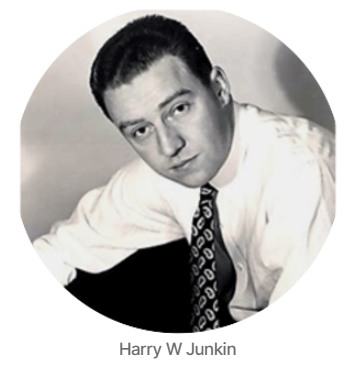Although a short-lived anthology, The Radio City Playhouse stories and production were a match for anything from the Tiffany Network
The competition between the NBC and CBS Radio Networks was one of the great rivalries of corporate America, on par with Ford vs Chevy, Pizza Hut vs Domino's, Marvel vs DC Comics, McDonald's vs Burger King, or Coke vs Pepsi. It is a story of innovation, imitation, strong personalities, and more than a few lucky breaks for each side. It is difficult to determine which network came out on top as the competition evolved into the broadcast TV market, but we can state that the overall winner was the audience.
One huge programming victory that the "Tiffany Network" enjoyed was in Anthology Programs. Although NBC's University Programs put out some great dramas, they could not match the artistic or commercial triumphs of CBS's Columbia Workshop, Escape, or Suspense. However, as TV was beginning to cut into Radio's dominance the National Broadcasting Company managed to field an anthology to match the quality of CBS's best, The Radio City Playhouse directed by newcomer Harry W. Junkin debuted on July 3, 1948.
Canadian-born Junkin started as an actor before serving in the RCAF during the Second World War. After his discharge, he went to work in advertising in Montreal before moving on to New York. While producing commercials he decided to try his hand at writing scripts. Most of the dialog he created was for his commercials, but by the end of the decade, Junkin began submitting dramas.
On Radio City Playhouse, Junkin worked as director and narrator, as well as writing nearly half of the scripts. Rather than exclusively seeking out scripts from big-name writers, Playhouse would consider all submissions as long as they were "good drama" stories. From the stories he authored himself, Junkin was qualified to make this judgment on his own, although the show was overseen by NBC Script Manager Richard McDonagh.
By the time Radio City Playhouse began, most of the broadcasting industry had migrated to the West Coast, although Playhouse would broadcast live from the Radio City Studios in New York. This allowed for both established radio actors and newcomers to be hired for the show, which aired in a late Saturday night timeslot.
After Playhouse went off the air at the beginning of 1950, Junkin wrote for Mr. Moto, Mr. District Attorney, and Mr. Keen, Tracer of Lost Persons before transitioning to television. Although the anthology would be short-lived, the stories and production of Radio City Playhouse matched or exceeded anything presented by CBS.

Comments
Post a Comment